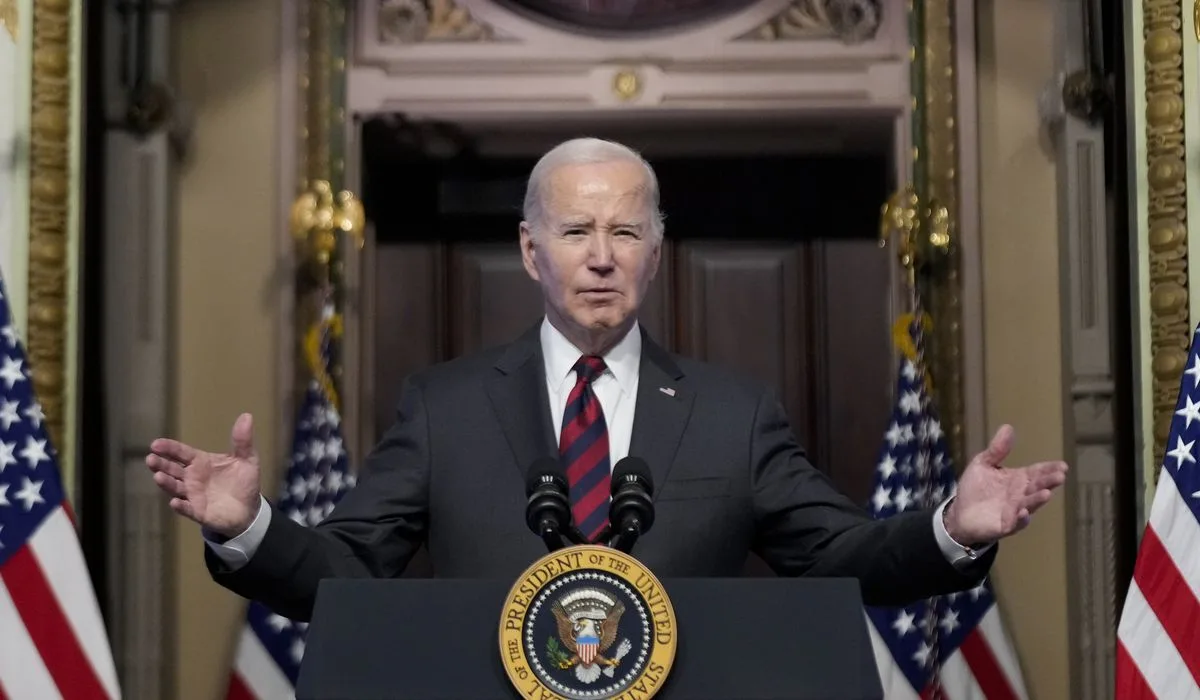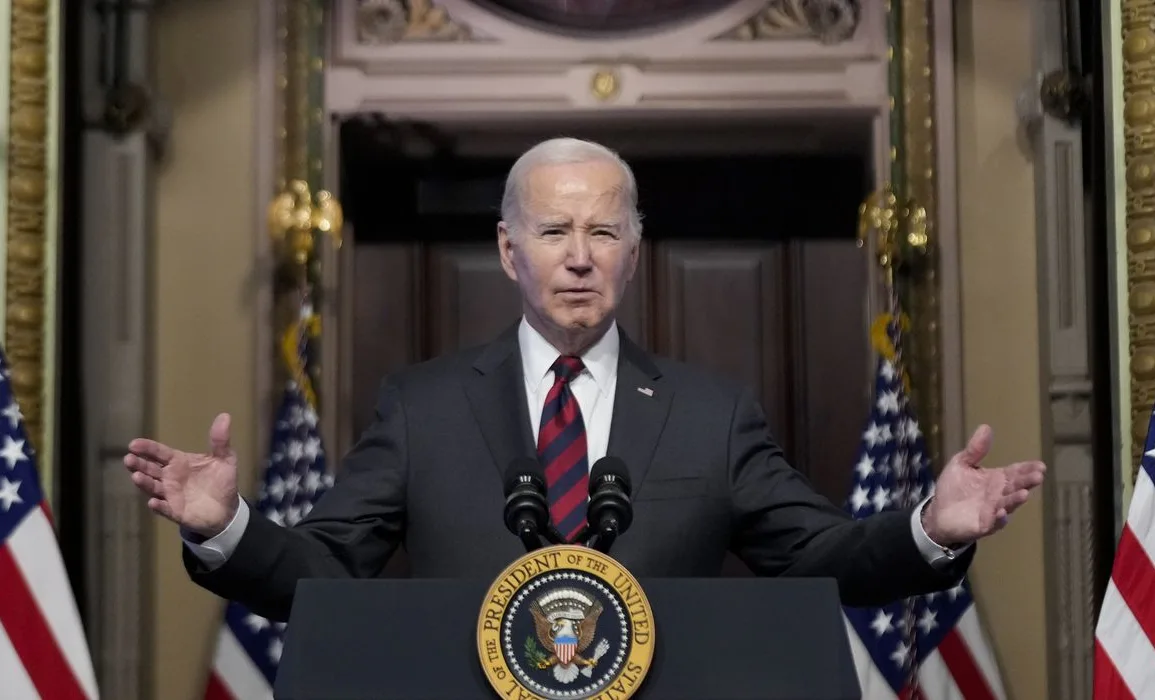
Black voters say President Biden has abandoned his pledge to always have their backs and are threatening to withhold their support in 2024, and some are even drifting toward former President Donald Trump.
The lack of enthusiasm among Black voters could prove fatal to Mr. Biden’s reelection chances. They formed the core of Mr. Biden’s base in 2020, and a dip in just one or two battleground states, such as Georgia or Michigan, would likely determine the election outcome.
“I talk with many, many African Americans who are disappointed in the things Biden is doing,” said Raleigh Washington, who leads a religious organization aimed at helping the Black community. “He said an awful lot of things about helping African Americans, but his actions have not reflected those promises, and what he has done doesn’t really encourage or support me as an African African.”
David Dix, a Democratic Party strategist, argues that Mr. Biden has delivered on his promises to help lift the Black community but said he hasn’t promoted these efforts because the wars in the Middle East and Ukraine are taking so much of his bandwidth.
“Once he starts to connect his policies to improving the lives of African Americans, you will see that slippage slow down a bit,” he said. “Focusing on international affairs in Israel and Ukraine and less about how his programs are helping will cause slippage.”
A poll by The New York Times/Siena College revealed that 22% of Black voters in six battleground states would support Mr. Trump and 71% would back Mr. Biden in a theoretical rematch.
SEE ALSO: White House refuses to say if Biden apologized for questioning Hamas on death toll
Those numbers don’t seem significant initially, but they show that Mr. Biden’s support in Black communities is waning. Mr. Biden captured 92% of the Black vote in 2020, compared with 8% who turned out for Mr. Trump, according to Pew Research.
Just days after Mr. Biden won the 2020 election, he acknowledged the debt he owed the Black community for his victory, thanked them for “having his back” and vowed to always have theirs.
A Republican presidential candidate hasn’t won more than 12% of the Black vote since Dwight D. Eisenhower in 1956.
Mr. Biden has moved to shore up support from minority voters.
Before Mr. Biden’s Thanksgiving break, he taped three interviews with Black and Hispanic radio shows, including “Get Up! Mornings” with Erica Campbell and “The Rickey Smiley Morning Show.” During the interviews, Mr. Biden discussed how his economic agenda benefited Black and Hispanic communities.
Black community leaders have no one reason for the erosion of support for Mr. Biden, but many are quick to point to soaring grocery, gasoline and housing prices. Black families were hit particularly hard when inflation reached a 40-year-high last year because they trailed White Americans in income, wealth, financial savings and homeownership.
“We are still feeling the pains of the economic reset,” said Stephen Broden, a Black conservative who founded Ebony Berean to fight the culture wars in Black communities.?
“A nosebleed in the White community is a hemorrhage in the Black community,” he said. “The investment that Biden promised is not evident, and there has been a gross failure here that has awakened our community to the fact that the Democratic Party has exploited our community for votes and given us nothing in return.”
Wage gains have cooled more dramatically for Black workers than other Americans. The median weekly earnings for full-time employed Blacks people when Mr. Biden took office in January 2021 was $304. It was $299 in the third quarter of this year, according to Labor Department statistics.
For all other communities, it was $365 per week.
The unemployment rate for Black workers fell to a record low 4.7% in April but rose to 5.8% in October. That outpaced the increase for American workers overall.
Mr. Broden said Black America’s economic woes are exacerbated by Biden policies that have led to record levels of illegal immigration.
“There is a seething that is happening in our community when they look at what is happening at the border and allowing people to come in and take jobs at the lower part of the economic spectrum, which are jobs taken by the Black community,” he said.
The administration disputes claims that it hasn’t helped the Black community. Officials point to money from legislative victories such as Mr. Biden’s tax and climate law, infrastructure programs and COVID-19 relief.
Stephen Benjamin, director of the White House office of public engagement, said the president has kept his word to minority communities.
“Since Day One, the president has taken a whole-of-government approach to advancing racial equity and enhancing the lives of Black families across the nation. He’s kept his word by increasing investment and economic opportunity in Black communities, improving health outcomes, providing historic support for [historically Black colleges and universities], and taking action to reform our criminal justice system, just to name a few,” he said in a statement to The Washington Times.
The tax and climate law, dubbed the Inflation Reduction Act, commits at least 40% of certain federal investments to Black and underserved communities. The White House also said households can save as much as 30% with tax credits for environmentally friendly home renovations. Those tax credits apply to everyone, not just the Black community.
The COVID-19 relief, known as the American Rescue Plan, included provisions to expand the child tax credit. The administration claims the credit has helped lower poverty rates for Black children and provided $39 billion to help child care providers stay open during a period of economic chaos. One in five child care providers are Black, according to data from the administration.
The president’s infrastructure bill also includes provisions aimed at repairing Black neighborhoods that are separated from larger communities by highways, thus limiting their connections to economic opportunities.
Mr. Biden has set a goal of increasing the share of federal contracting funds to minority-owned businesses to 50% by 2025, up from its current level of 10%.
“I think you’ll see these polls as a legitimate pivot point for the president to recognize how important that voting bloc is and just how much attention he is paying to them,” Mr. Dix said. “When that happens, you’ll see Black voters coming back.”
Mr. Washington said Mr. Biden’s investments have done little to improve the lives of Black Americans. He noted higher grocery prices, including $5 for a dozen eggs.
Mr. Biden’s reelection campaign has amplified its message to Black voters in recent weeks by spending $25 million on television ads in Phoenix, Atlanta, Detroit, Philadelphia and other areas. The campaign also launched a program targeting predominantly Black neighborhoods in Milwaukee and other areas.
The ads, claiming that Mr. Biden “is putting in the work for Black America,” are part of the largest and earliest ad splurge any campaign has ever placed in Black media outlets.
In another sign that the Biden campaign is worried about Black voters, the campaign dispatched Vice President Kamala Harris to tour historically Black colleges and universities to encourage students to vote.
The administration says its commitment isn’t limited to economic investments. Officials say Mr. Biden has appointed a record number of Black judges, including Black women. Among those is the appointment of Justice Ketanji Brown Jackson, the first Black woman on the Supreme Court.
Mr. Broden dismisses the judicial appointments.
“It is tokenism at its best,” he said. “If you look at the economic conditions of the community, our kids are lagging far behind. So what, you appointed Black judges? What does that have to do with my ability to put food on the table?” he said.
The abortion issue helped deliver some big victories to Democrats on Election Day this month but won’t go as far with Black voters, who tend to be more religious and conservative on social issues than urban Whites.
Polls suggest that young Black voters have soured on Mr. Biden more than older Blacks voters. An American Enterprise Institute study released in September found that only 57.9% of Black people ages 18 to 49 approve of Mr. Biden’s handling of the presidency, compared with 78.9% of Black people 50 and older. The poll found that only 36.3% of Black people ages 18 to 49 say Mr. Biden has accomplished “a good or great deal,” while 72% older than 50 agree.
The bigger concern for Democrats is not that Black voters will flock to Mr. Trump but that they will opt to stay home on Election Day. Some evidence shows that is happening.
Voters in Louisiana last month elected the first Republican governor in nearly a decade. Only about 36% of the state’s 3 million registered voters went to the polls, but the drop appears to be even stronger among Blacks.
In 10 of the 15 Louisiana parishes where at least 40% of the residents are Black, the turnout was below the state average of 36%, including in the parishes with the state’s two largest cities, New Orleans and Baton Rouge, according to data from the Louisiana secretary of state.
Mr. Biden’s tepid response from the Black community is affecting his reelection at the local level. An EPIC-MRA poll released Saturday found that only 62% of Black respondents would support Mr. Biden for a second term. Of those who didn’t support the president, 17% said they would vote for Mr. Trump and 17% remained undecided.



